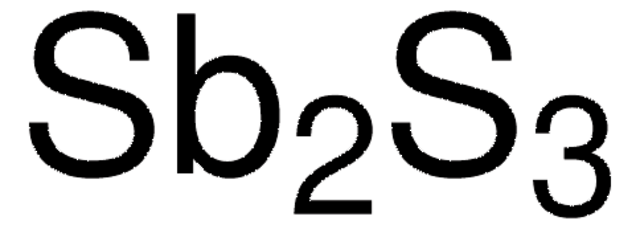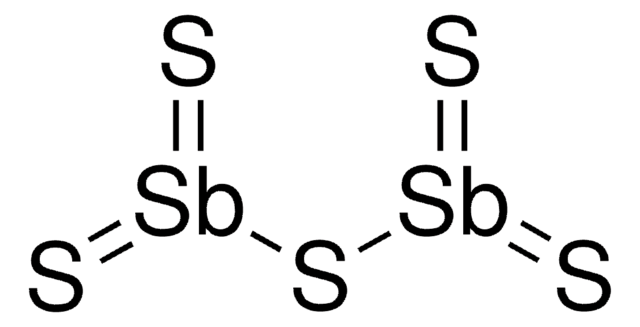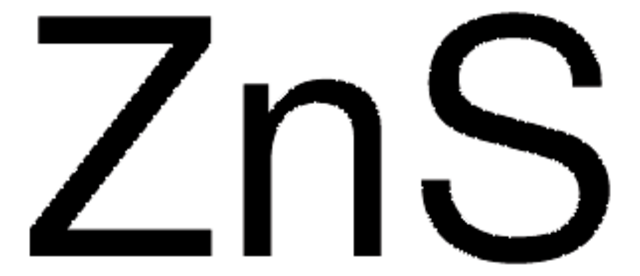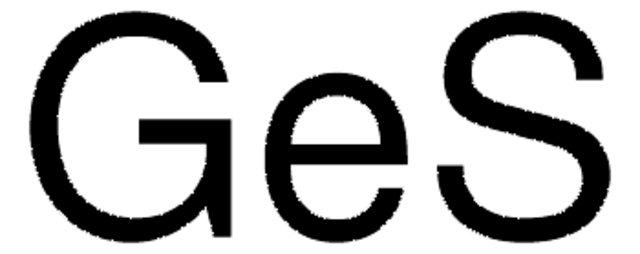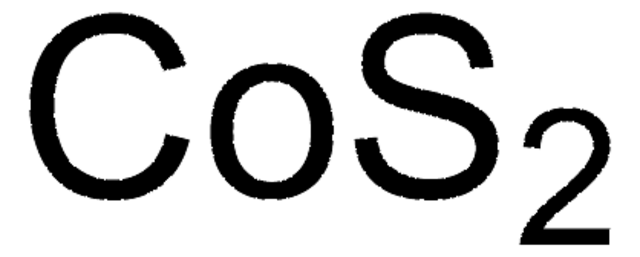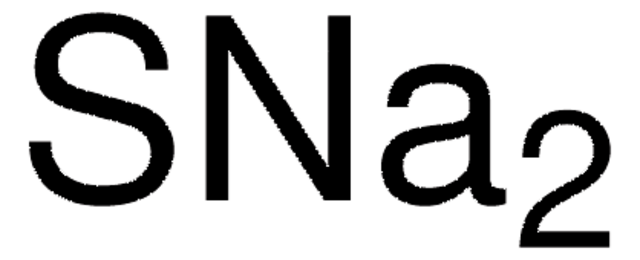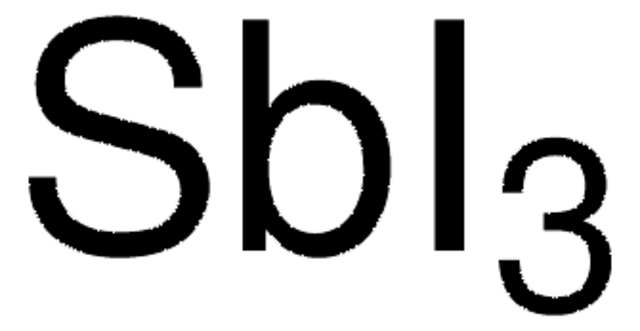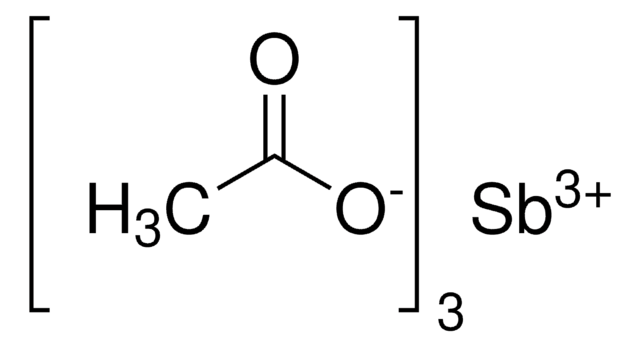All Photos(3)
About This Item
Linear Formula:
Sb2S3
CAS Number:
Molecular Weight:
339.72
EC Number:
MDL number:
UNSPSC Code:
12352300
eCl@ss:
38080208
PubChem Substance ID:
NACRES:
NA.23
Recommended Products
form
powder
Quality Level
mp
550 °C (lit.)
density
4.64 g/mL at 25 °C (lit.)
SMILES string
S=[Sb]S[Sb]=S
InChI
1S/3S.2Sb
InChI key
IHBMMJGTJFPEQY-UHFFFAOYSA-N
Looking for similar products? Visit Product Comparison Guide
Related Categories
Signal Word
Warning
Hazard Statements
Precautionary Statements
Hazard Classifications
Aquatic Chronic 3 - Carc. 2 - STOT RE 2
Target Organs
Lungs
Storage Class Code
6.1C - Combustible acute toxic Cat.3 / toxic compounds or compounds which causing chronic effects
WGK
WGK 2
Flash Point(F)
Not applicable
Flash Point(C)
Not applicable
Personal Protective Equipment
dust mask type N95 (US), Eyeshields, Gloves
Choose from one of the most recent versions:
Already Own This Product?
Find documentation for the products that you have recently purchased in the Document Library.
Customers Also Viewed
Justin Varghese et al.
Nano letters, 12(2), 868-872 (2012-01-25)
We report the first observation of piezoelectricity and ferroelectricity in individual Sb(2)S(3) nanowires embedded in anodic alumina templates. Switching spectroscopy-piezoresponse force microscopy (SS-PFM) measurements demonstrate that individual, c-axis-oriented Sb(2)S(3) nanowires exhibit ferroelectric as well as piezoelectric switching behavior. Sb(2)S(3) nanowires
C Tsopelas
Journal of nuclear medicine : official publication, Society of Nuclear Medicine, 42(3), 460-466 (2001-05-05)
Colloidal particle size is an important characteristic to consider when choosing a radiopharmaceutical for mapping sentinel nodes in lymphoscintigraphy. Photon correlation spectroscopy (PCS) and transmission electron microscopy (TEM) were used to determine the particle size of antimony trisulfide and rhenium
B Kalin
Acta radiologica. Supplementum, 385, 1-24 (1993-01-01)
Today bone marrow scintigraphy is performed by imaging either the reticuloendothelial system by means of colloids or the hematopoietic marrow with granulocytes. When visualizing the marrow with radiolabeled colloids most of the administered activity will be taken up by the
Chris Tsopelas
Applied radiation and isotopes : including data, instrumentation and methods for use in agriculture, industry and medicine, 59(5-6), 321-328 (2003-11-19)
The chemistry of antimony trisulphide colloid (ATC) was examined to elucidate the radiolabelling mechanism with 99mTcO4(-). Ion exchange chromatography and atomic absorption spectrophotometry techniques determined ATC to be resistant to hydrolysis in 0.1M hydrochloric acid (HCl) at 25 degrees C
Z Radovanovic et al.
European journal of surgical oncology : the journal of the European Society of Surgical Oncology and the British Association of Surgical Oncology, 30(9), 913-917 (2004-10-23)
Sentinel lymph node biopsy in breast cancer can be used to select patients in which axillary lymph node dissection could be avoided. In this study we compared the value of two methods for identification of sentinel node (SN) using either
Our team of scientists has experience in all areas of research including Life Science, Material Science, Chemical Synthesis, Chromatography, Analytical and many others.
Contact Technical Service